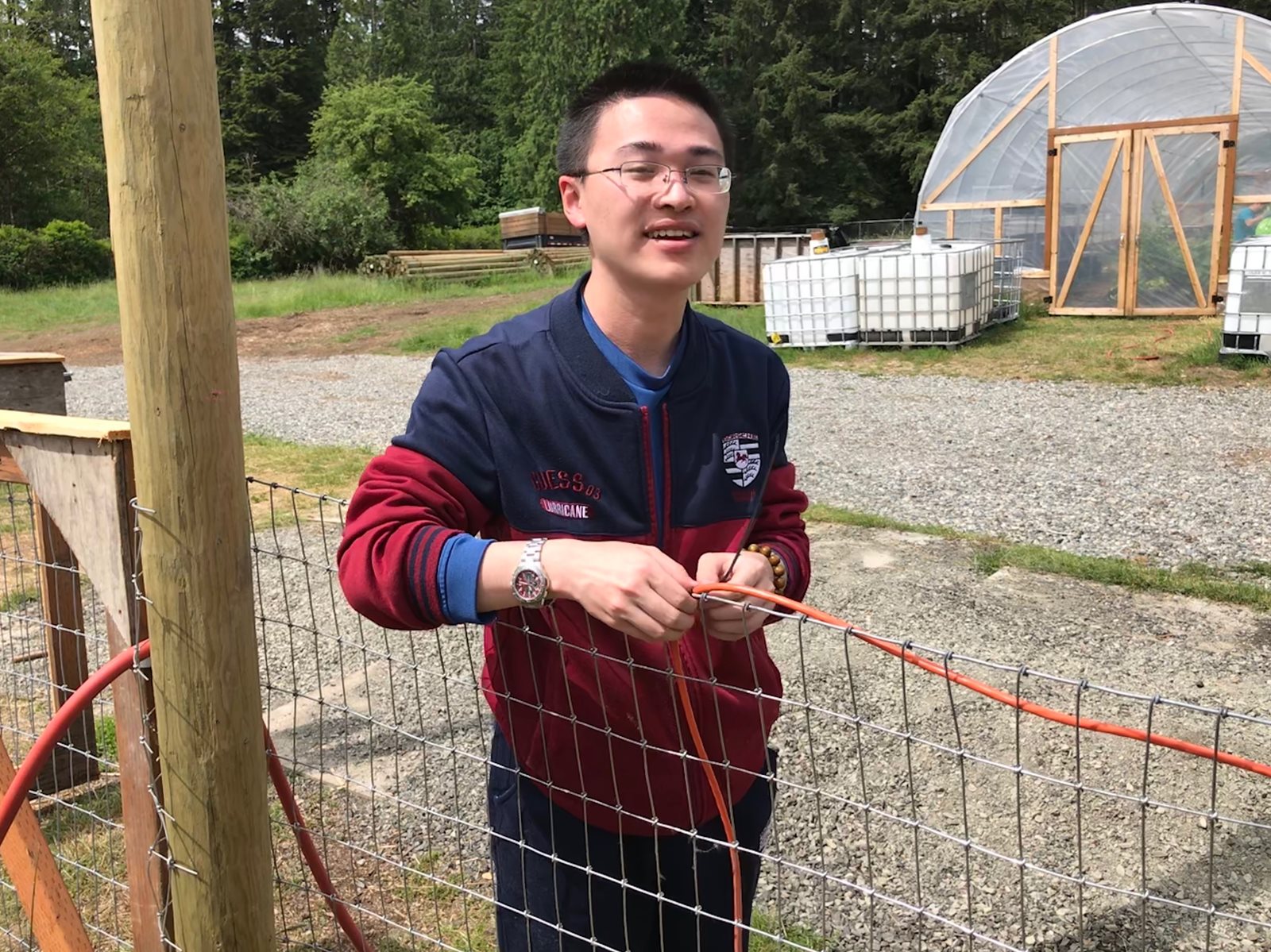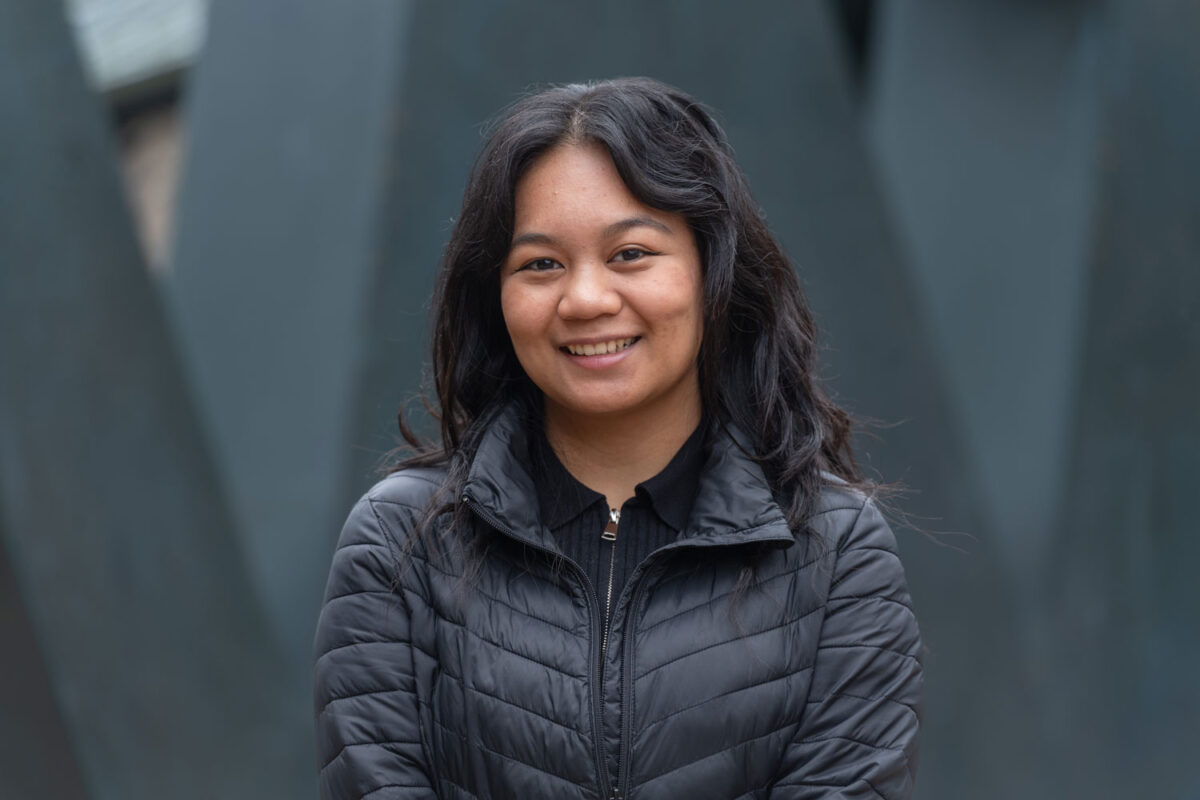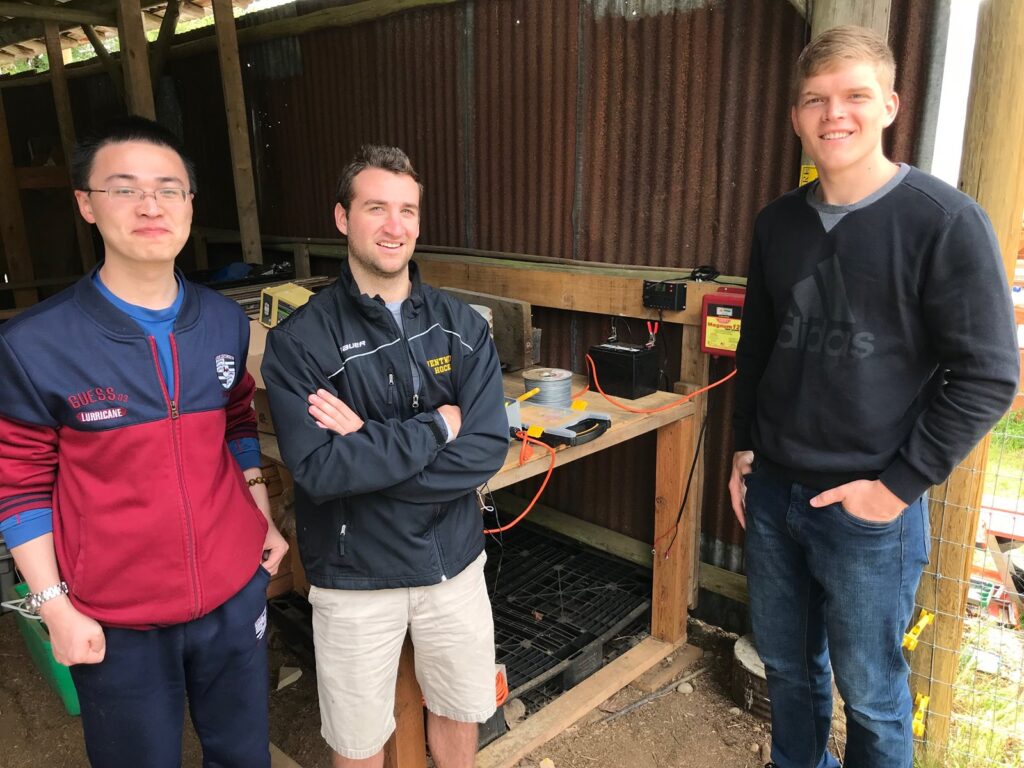
By Douglas Esser
Bear Creek is aptly named. Plenty of black bears still roam the woods of its headwaters in the Paradise Valley Conservation Area near Maltby, less than 10 miles from the University of Washington Bothell.
In fact, the bears are making their neighbors nervous at Farmer Frog, a nonprofit educational farm in the conservation area. There have been bear sightings in the farm’s apple orchard. The farm’s guard dogs have also been barking at night, likely because of the scent of bear in the air, said Nick Waite, an educator at Farmer Frog, below.
As a precaution against predation, one electric fence had already been placed around a goat pen. Recently, UW Bothell mechanical engineering students enhanced a second electrified fence around the farm’s hoop houses. The simple greenhouse structures hold the farm’s aquaponics, left. The circulating watering system supports fish and strawberries that are tempting targets for bears.
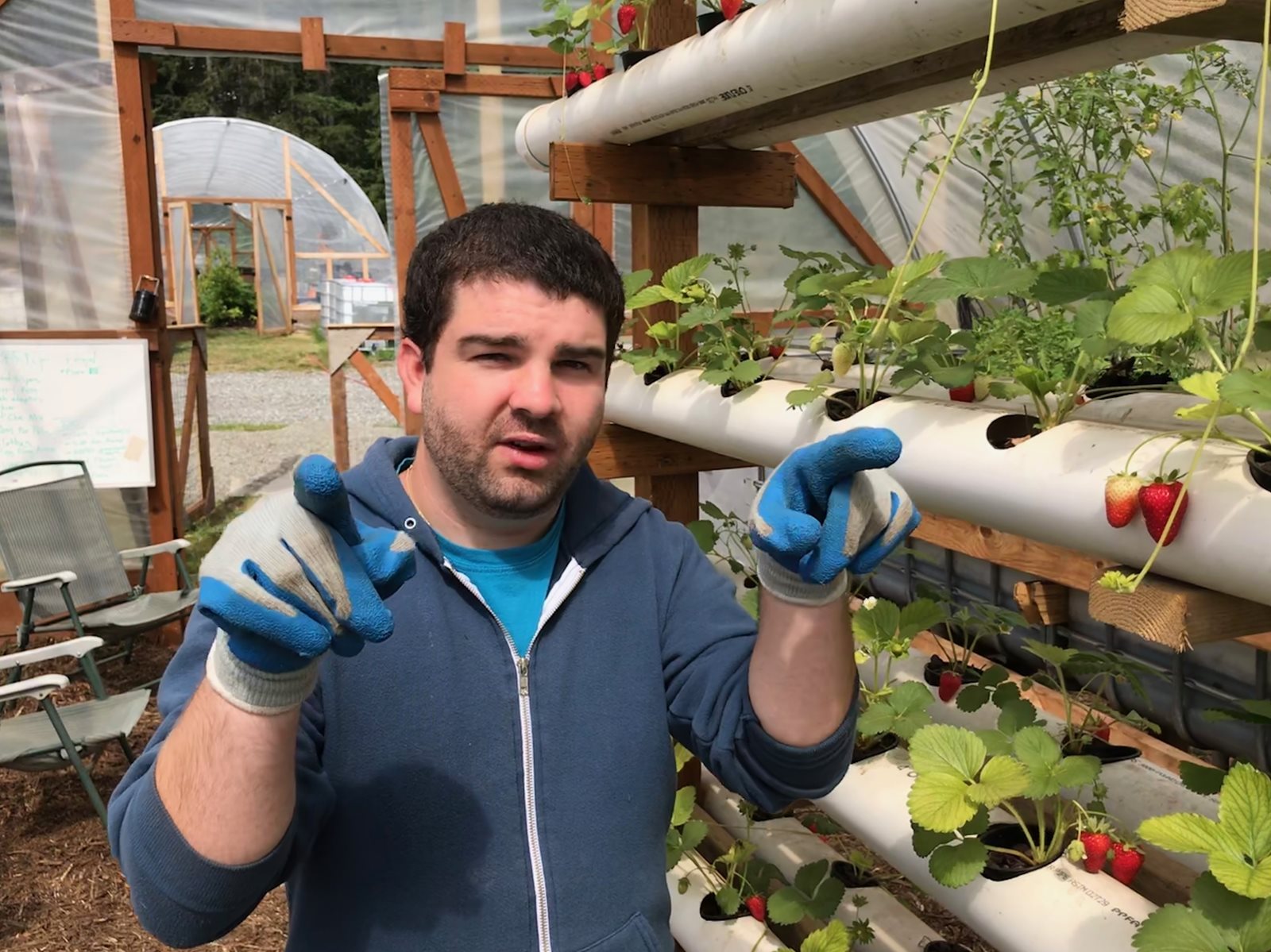
“Farmer Frog wants to demonstrate how to coexist with wildlife, even large predators, for everyone’s sake,” said Zsofia Pasztor, founder and executive co-director.
More important than raising goats, fattening fish and growing strawberries, Farmer Frog is cultivating a community where children learn how to promote a nurturing habitat for all living things.
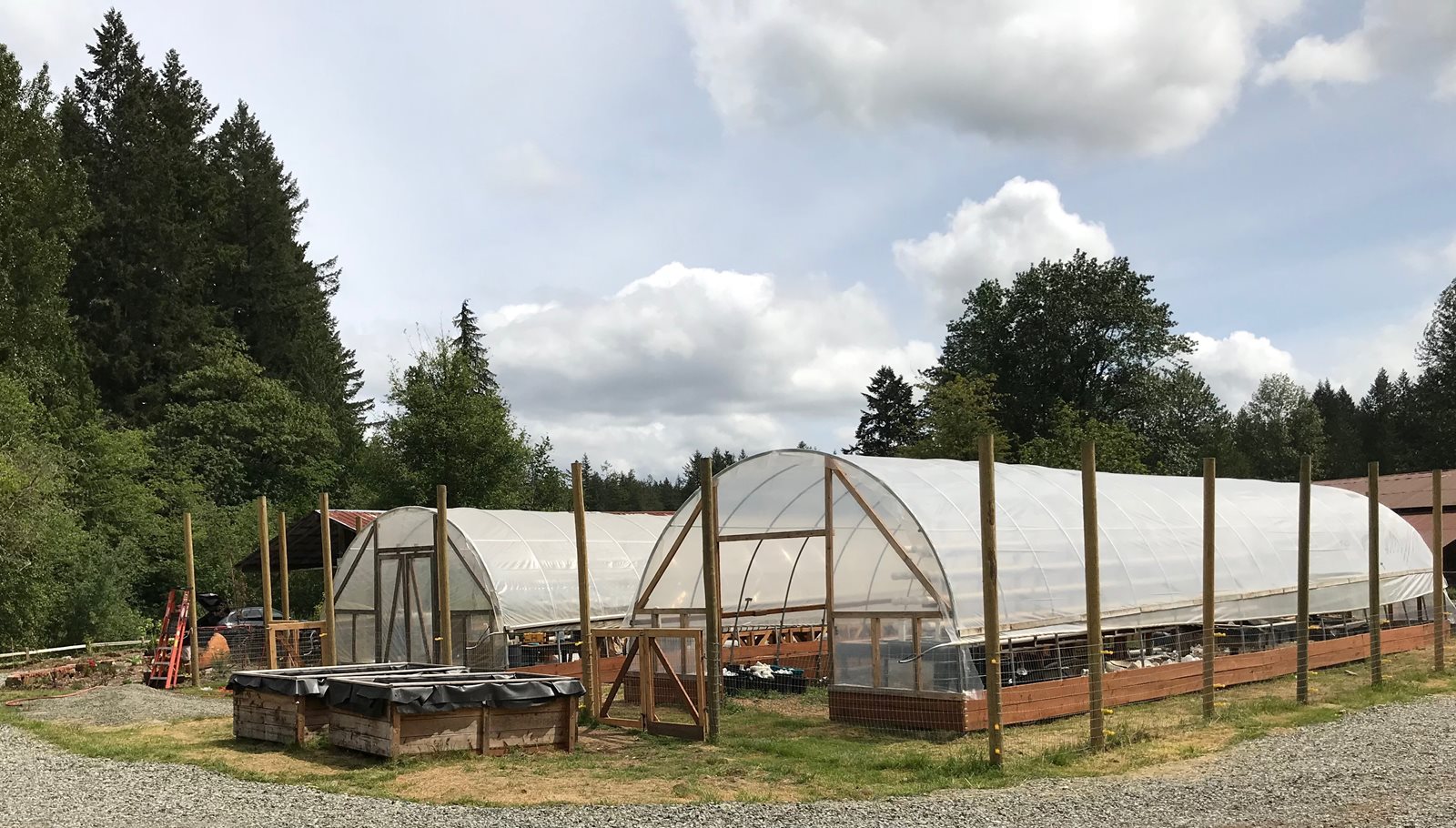
“We are working with Bear Smart, Western Wildlife Outreach and other organizations to develop successful demonstration projects, featuring practices that help us grow food and keep the bears and our farm safe,” Pasztor said.
One of those practices is the smart electric fence. About five feet tall and 300 feet long, it is constructed of a wire mesh with an electrified wire around the top. A bear touching it would receive a high-voltage shock that would ruin any bruin’s appetite.
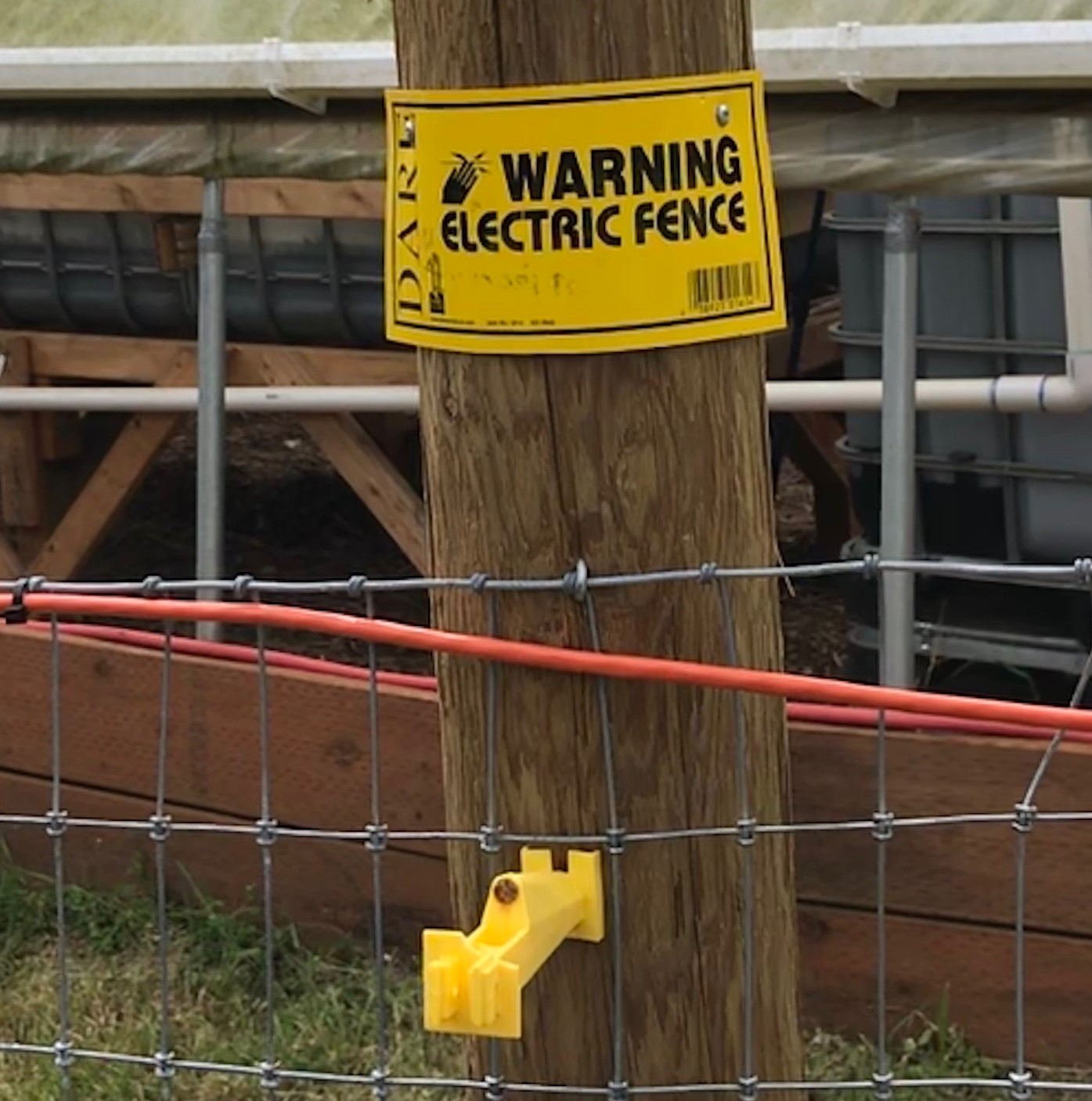
Erecting the fence was an Earth Day project for more than 100 employees of the Lynnwood Comcast office, which contributed $4,000 toward the day’s projects at the farm, including the fencing, Pasztor said.
The “smart” touch was the capstone project for four of Professor Pierre Mourad’s mechanical engineering students: Brian Farkas, Darwin Faylona, Nazary Vasilchenko and Guangxiao Zhang. All are graduating seniors. Imen Hannachi, a lecturer in the School of Science, Technology, Engineering & Mathematics, served as their academic adviser along with Mourad.
The students designed and built a system that uses a camera with facial recognition software. When it “sees” a bear, it turns on a light, which Farkas installed, left. The light could serve as a warning to people in the area. A bear that gets zapped might also learn to recognize the light as a warning to stay away.
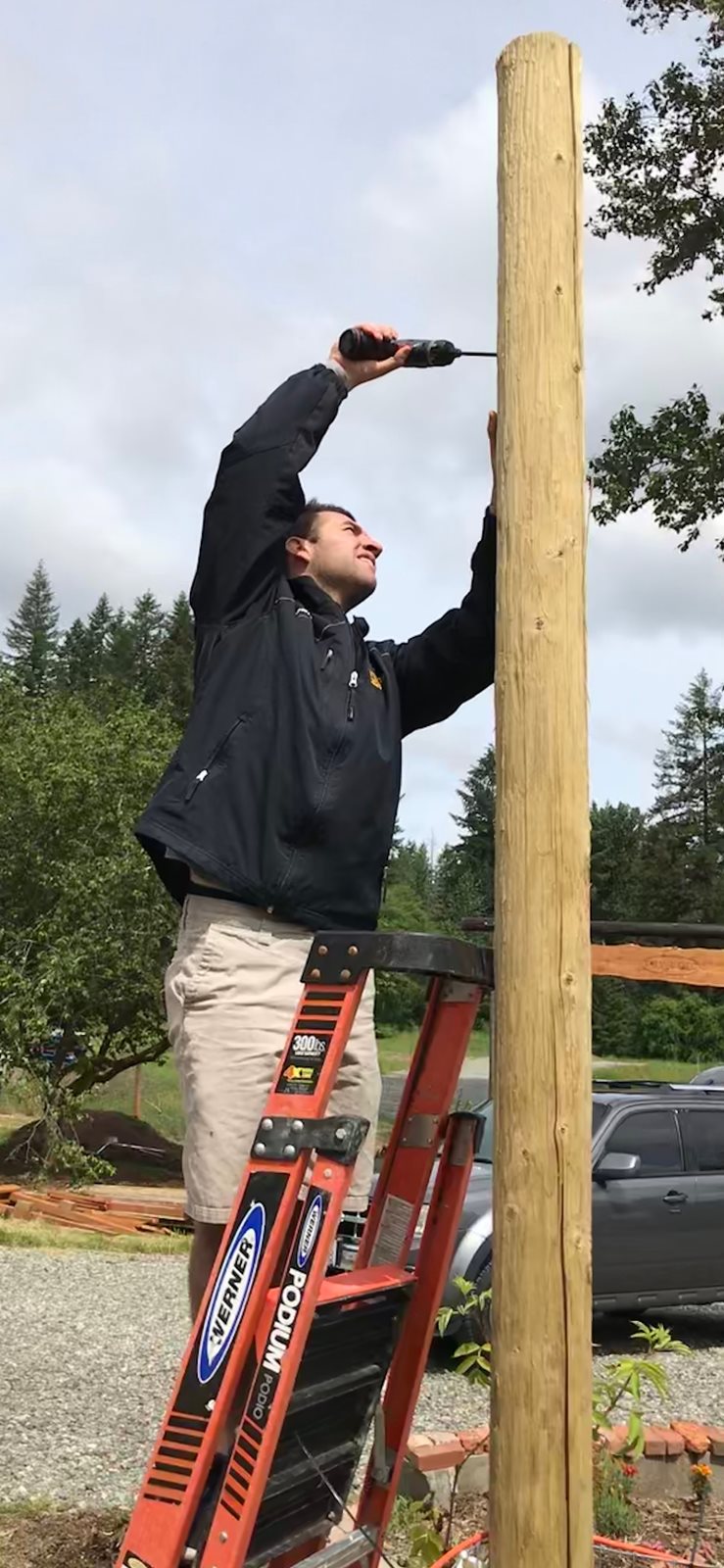
This is the third year that Mourad’s students have worked on projects at the farm.
“He is receptive, he shares our passion for a healthy world and sustainable living, and he knows how to inspire his students so they can freely innovate and see projects into being,” said Pastzor.
Last year students made a biodigester to generate methane gas for heating. Previously they designed a solar power system for the aquaponics. The collaboration provides an opportunity for community-based learning and research that engages students across disciplines and gives them real-world experience.
“It’s good that we got to do little programming and make things more automated,” said Farkas. “It was good to get our feet wet on the electrical side, and hopefully it helps when we go to look for jobs.”
Projects are great ways to practice how to function as a team and solve problems, said Vasilchenko
“You have to work around things, learn how to work with other people,” he said. “It’s a great opportunity for us to learn before going into the workforce.”
